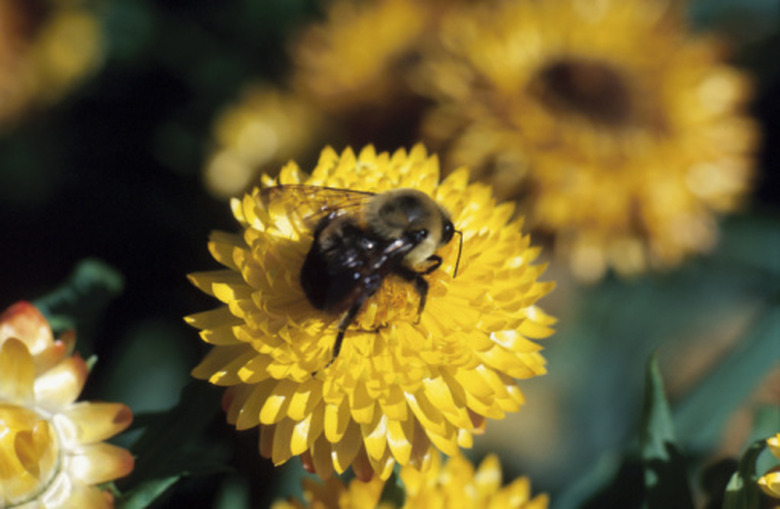At-Home Bee Repellents
While bees can be beneficial to plants because they carry pollen from flower to flower, they can be a nuisance to gardeners and dangerous for those with allergies. Because bees are beneficial insects, killing them might not be the best option. Luckily, there are many ways to repel bees from yourself and your loved ones, as well as keep bees out of your garden or backyard.
Almond Oil
Almond oil has bee-repelling qualities because many species of bees hate the smell of the active ingredient in the oil, benzaldehyde. This chemical is also used in many commercial, chemical bee repellents for this very reason. To repel bees outside, rub almond oil into the railings of porches, on outdoor furniture or anywhere you want to repel bees. When making an oil to rub on the skin that will repel bees or other insects, always use almond oil as a base because it will help intensify the repelling qualities of the other essential oils.
- While bees can be beneficial to plants because they carry pollen from flower to flower, they can be a nuisance to gardeners and dangerous for those with allergies.
Other Essential Oils
Another essential oil for repelling bees is tea tree oil, sold at many health food or beauty stores. Tea tree oil can be used alone to soothe stings and other skin abrasions, but it can also be mixed with almond, orange and citronella oils to create a homemade bee repellent. Mix 16 ounces of almond oil with 1/8 ounce of citronella, orange and tea tree oils and shake well. Apply to the skin to repel bees. You can also mix essential oils with perfumer's alcohol or high-proof alcohol such as vodka to make a bee-repellent spray.
Herbs
There are also some herbs that, when planted in the garden, will repel bees. You can plant these herbs around the places where you sit outside, or in pots to place on your porch or picnic table. Bees are known to hate feverfew, but they will also avoid strong-smelling curry plants, wormwood, mugwort and tarragon. Just remember not to plant these herbs near flowers or other plants like tomatoes that need bees to pollinate them.
- Another essential oil for repelling bees is tea tree oil, sold at many health food or beauty stores.
- Tea tree oil can be used alone to soothe stings and other skin abrasions, but it can also be mixed with almond, orange and citronella oils to create a homemade bee repellent.
Removing Nests
Bees like to nest in piles of wood, under eaves or inside unused cars or farm equipment. First, remove these nesting places if possible, but you can also smoke out bees if you find they are nesting on your property. Simply twist up newspaper or other paper, set this on a metal pie tin, and light both ends. Set this underneath the nest. The bees will flee the smoke and find a new place to nest. If bees have nested in walls or under eaves, fill the holes with steel wool and cover with hardwood or metal.
